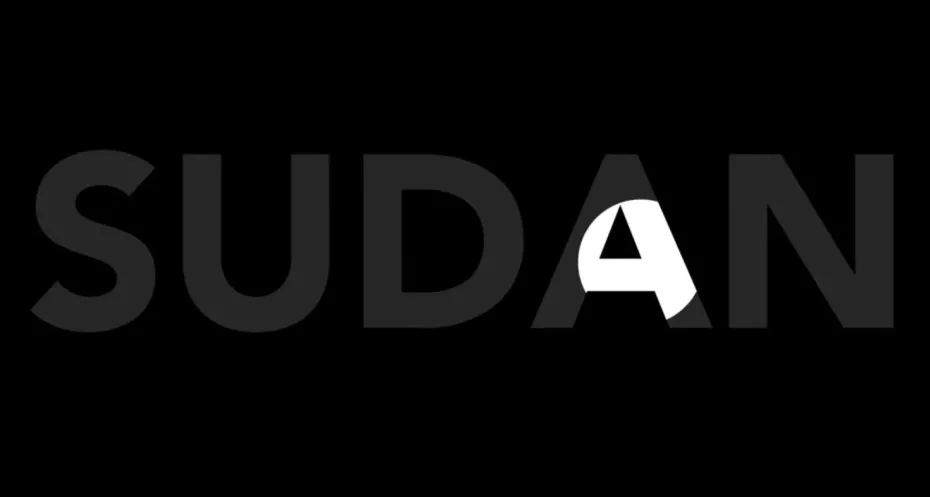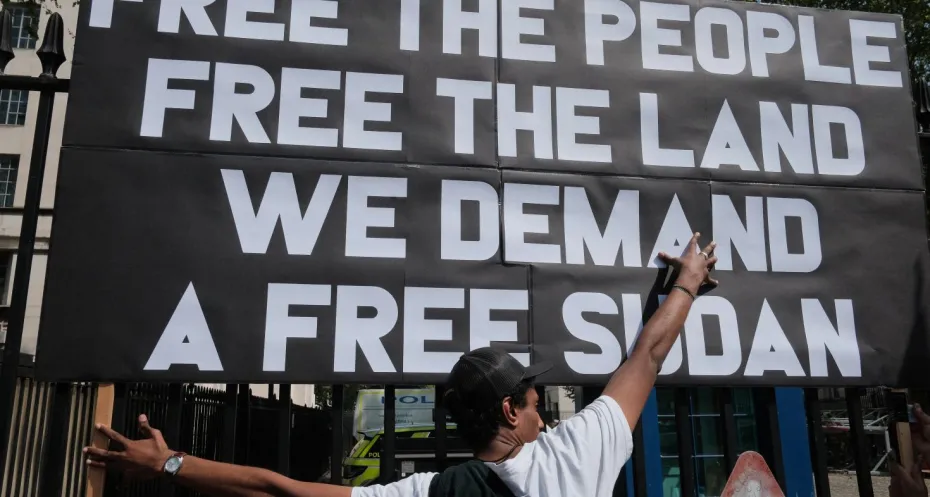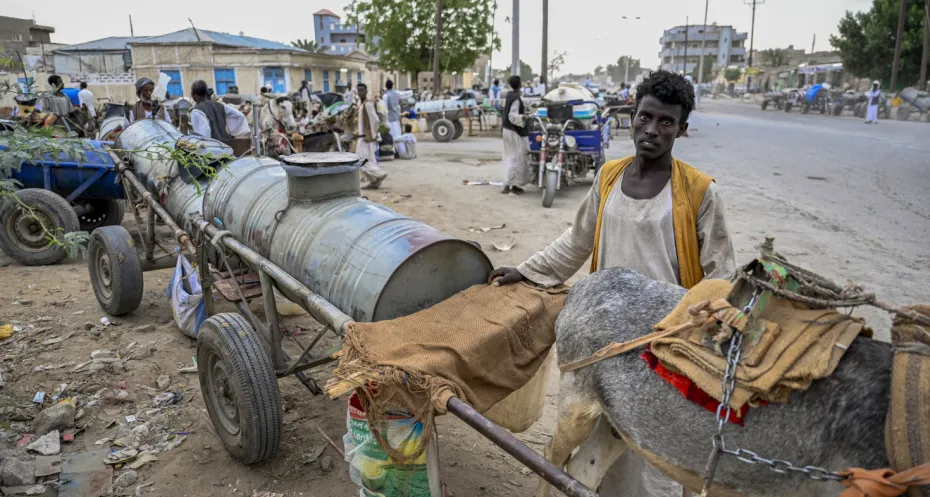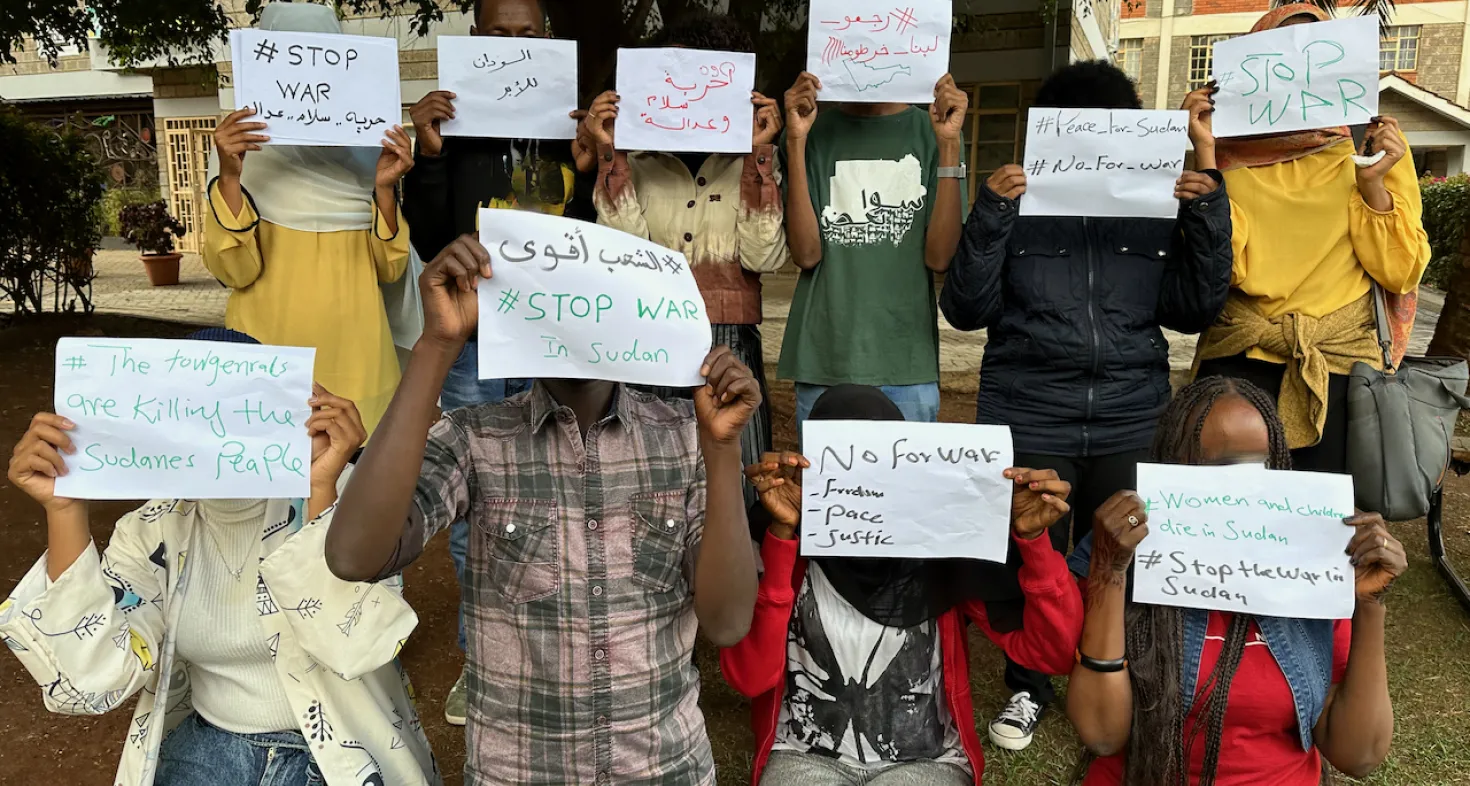
Providing a recovery residence to Sudanese journalists
While the civil war continues to ravage Sudan causing major distress and displacement to millions of people, a small number of journalists continue to report from inside Sudan, albeit under extreme conditions and threats. This has a great psychological impact and the risk of trauma is high. To help these journalists, Free Press Unlimited supported the set up of a recovery residence.
Journalists and media makers in Sudan have seen a continuous rise in targeted attacks by all conflict parties. Several have been tortured, ‘disappeared’ and even murdered. Free Press Unlimited supported Native Voice Films and AYIN Network in organising a recovery residence, including a trauma and skills workshop and post course regeneration period, for Sudanese journalists under threat. These two organisations have been present in Sudan and working with Sudanese media makers for over a decade. Both have built up a trusted network of independent Sudanese freelancers. The recovery residence was hosted by DOCUBOX in Nairobi, Kenya.
Free Press Unlimited finds psycho-social support is vital in journalism, as many journalists face challenging conditions, traumatic content, and long hours, often leading to high stress, depression, and burnout. The stigma around mental health in the industry and scarcity of structural support exacerbates these issues. Through our Reporters Respond programme we provided psycho-social support to 167 journalists in 2023. So far in 2024, we provided this support to 82 journalists.
Challenging preparations
To get the journalists from Sudan to the place of residence in Kenya safely was a challenge. A specialist team was put together to facilitate the movement and travel of each media maker / journalist inside Sudan a few months before the workshop. The team also consisted of Sudanese journalists who themselves had already made the journey out of Sudan and had gained specialist contacts and knowledge along the journey. Visas were organised and safe houses prepared along each route for each journalist.
A total of eight freelancers came from across Sudan. They were joined by four other Sudanese participants already in Kenya. Some of the participants had many years of journalism experience whilst others had only been reporting for the last year. The aim was to bring together and support both experienced journalists and new voices. In total the recovery residence programme lasted 10 days, but there was a possibility to stay for three more weeks to take more rest.
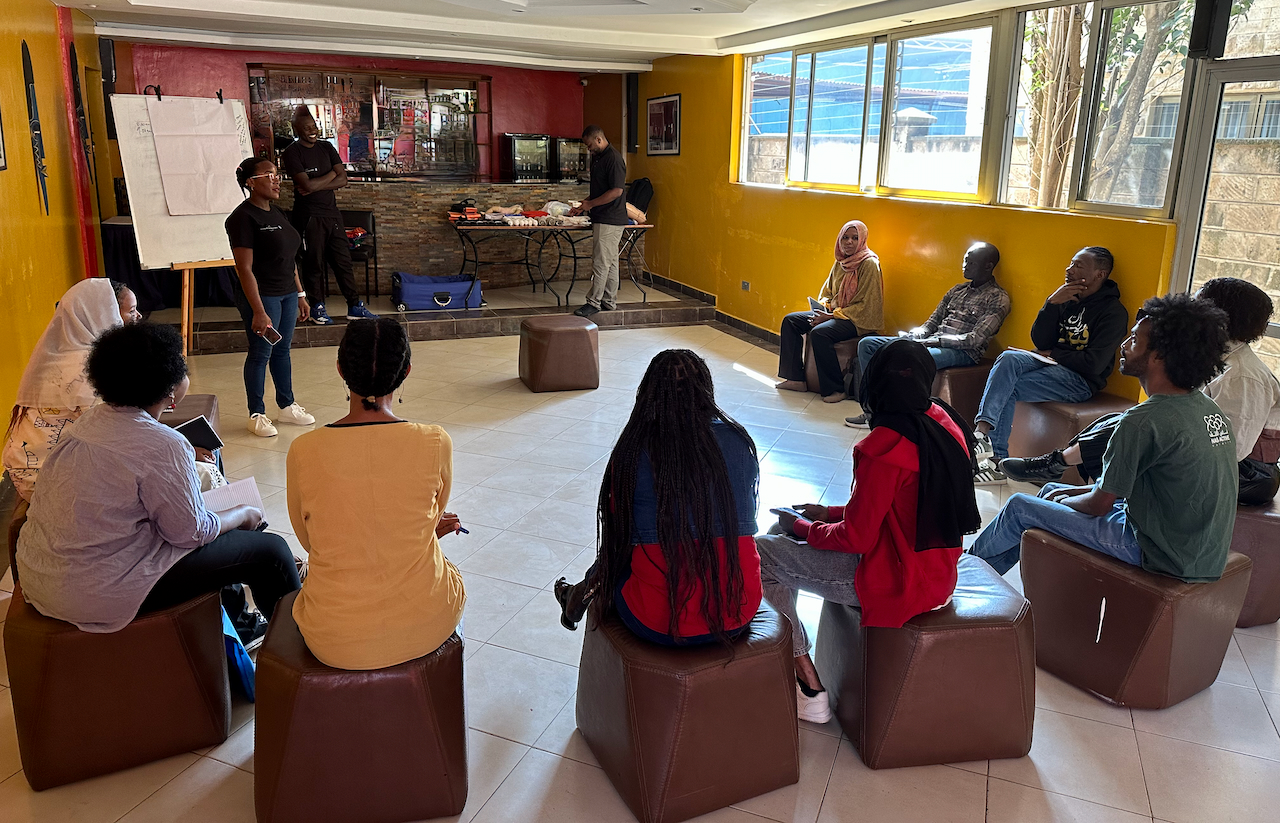
Prioritising mental health
Free Press Unlimited sees (psycho-social) safety workshops and safe networks as essential for journalists from high-stress areas. They provide a much-needed space for rest, reflection, and confidential discussions around mental health. These initiatives help journalists learn new coping skills, break the stigma, and disseminate this knowledge to their peers. By offering a chance to rest and recharge, these workshops help journalists continue their crucial work and elevate its quality while reducing the risk of burnout and leaving the profession.
“Self-care is vital for journalists in conflict zones to maintain mental health and resilience amidst high stress and anxiety." - Marwa Ali, trauma specialist
Marwa Ali, a trauma specialist who gave one of the workshops, says: “Self-care is vital for journalists in conflict zones to maintain mental health and resilience amidst high stress and anxiety. In our sessions, we emphasised simple, adaptable self-care practices such as taking short breaks, enjoying walks, or having a cup of tea with colleagues. These practices are simple but crucial for managing stress and preventing burnout.”
Openly discussing challenges
When reflecting on the outcomes of the workshops, Marwa Ali believes the most significant change that she observed in the participants was their newfound willingness to openly discuss their challenges for the first time: “The workshops also raised awareness about the benefits of counselling and therapy. Although some initially considered leaving their stressful jobs, by the end, they felt revitalised and more committed to continuing their careers with a renewed focus on self-care.”
Participant’s experience
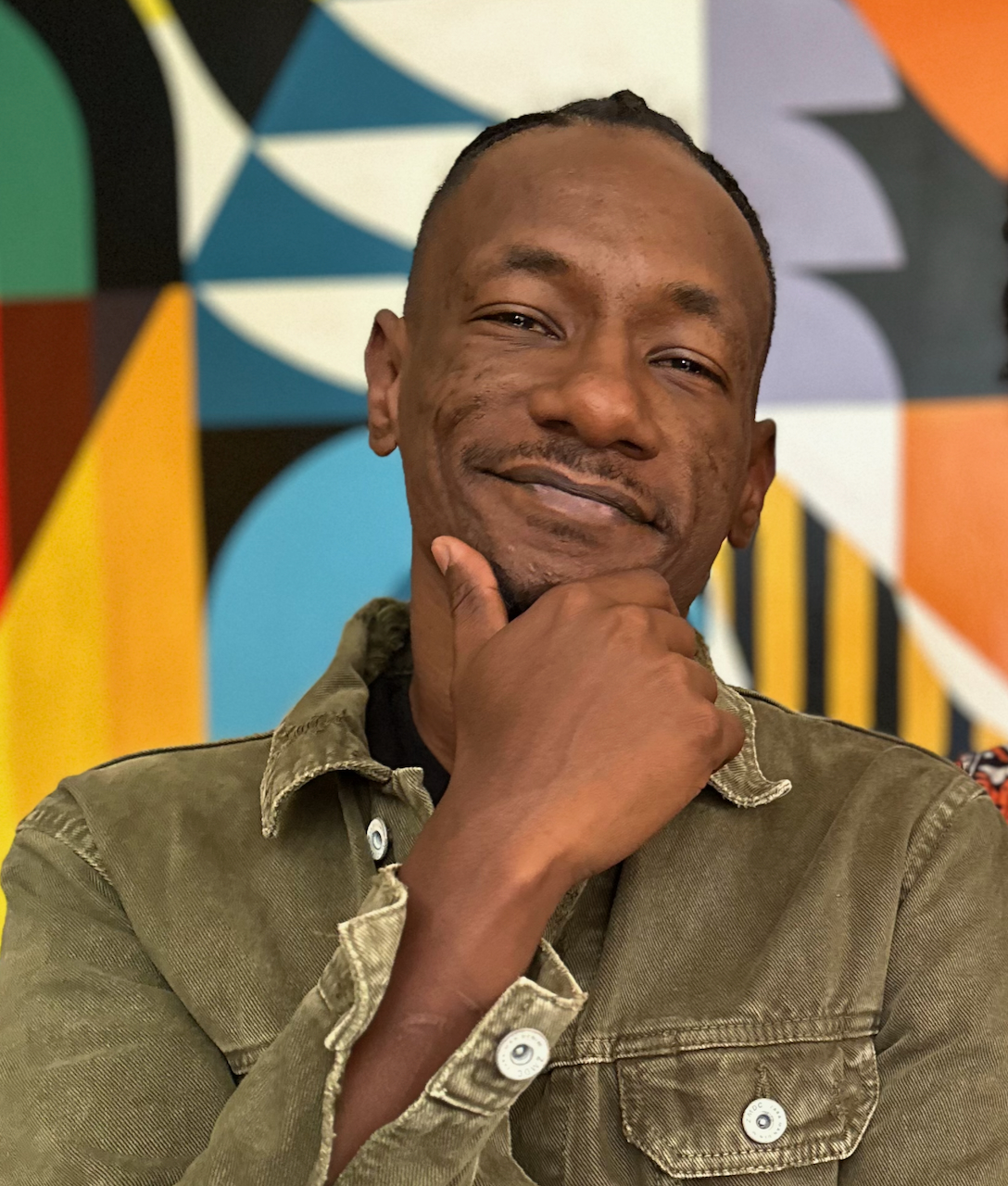 Journalist and filmmaker Ibrahim Snoopy was one of the journalists who joined the recovery residence, and he shares his experience.
Journalist and filmmaker Ibrahim Snoopy was one of the journalists who joined the recovery residence, and he shares his experience.
“I joined primarily to connect with other media workers from the region and enhance my reporting skills. The need for insightful journalism is more pressing than ever, given the ongoing conflict in Sudan. Initially, I viewed the psychological support aspect of the workshop as secondary, but I soon realised its immense value. It provided me with essential strategies for managing the emotional challenges of reporting in such conditions.
"The workshop was a real eye-opener for how I take care of myself. It made me realise that some of my old ways of handling stress were not beneficial in the long term.” - Ibrahim Snoopy, residence participant
Before the workshop, I managed the stress and trauma of reporting in conflict areas by fully immersing myself in the work. Whether documenting the influx of displaced individuals or shedding light on the realities of local hospitals treating the wounded. Our relentless pursuit wasn't merely journalistic; it became a coping mechanism to navigate the inherent stresses of living and reporting in conflict zones. The workshop was a real eye-opener for how I take care of myself. It made me realise that some of my old ways of handling stress were not beneficial in the long term.”
"I felt comfortable enough to share personal experiences with a group of strangers, which was incredibly freeing. It was like lifting a weight off my shoulders."
“Thanks to Marwa's skillful use of therapeutic techniques, for the first time, I felt comfortable enough to share personal experiences with a group of strangers, which was incredibly freeing. It was like lifting a weight off my shoulders, knowing I could speak openly without fear of being judged. In my line of work, people usually only see the end product, like a video or film, without realising the personal struggles that go into creating it. Being able to discuss these aspects openly was a huge relief.”
Medical response and digital security
Besides the psychosocial sessions, the recovery residence programme also included practical sessions on medical field response and digital security. Ibrahim felt that these sessions were critical for enhancing his safety and work efficiency.
"Understanding hacking techniques and how to protect and secure personal information is essential, especially when working in sensitive environments."
He says: “Medical response training is vital because it prepares you for emergencies, potentially preventing long-term guilt from being unprepared in a crisis. Digital security training is equally important, particularly for someone in my field as a journalist and filmmaker, where there's a heightened risk of being targeted. Understanding hacking techniques and how to protect and secure personal information is essential, especially when working in sensitive environments. These skills are not just beneficial but necessary for ensuring my safety and effectiveness in my professional duties.”
Creating a support network
Another aim of the residency was creating a network of journalists who could also support each other. On this Ibrahim shares: “I really value the network we formed during the workshop because it connects journalists who share safety tips and advice on staying well. Being part of this network keeps me updated, especially about what's happening in Sudan, and helps me feel connected instead of isolated. This network isn't just for professional help; it's a key support system that really improves our work and personal development.”
Free Press Unlimited and psycho-social support
Free Press Unlimited recognises the importance of mental health in the journalism profession and has consistently incorporated it into our holistic support programs over the past years. Through our emergency programme Reporters Respond, we provide direct grants and guidance to journalists in need of immediate care. We have also been expanding directories of mental health professionals and organisations globally, focusing on sensitive and inclusive approaches to the unique needs of journalists.
We actively promote knowledge exchange between journalists, mental health professionals, and academics, supporting ongoing research on the mental health impacts of journalism. Additionally, our teams support workshops and training initiatives that focus on psycho-education, coping skills, and the creation of peer support networks.
